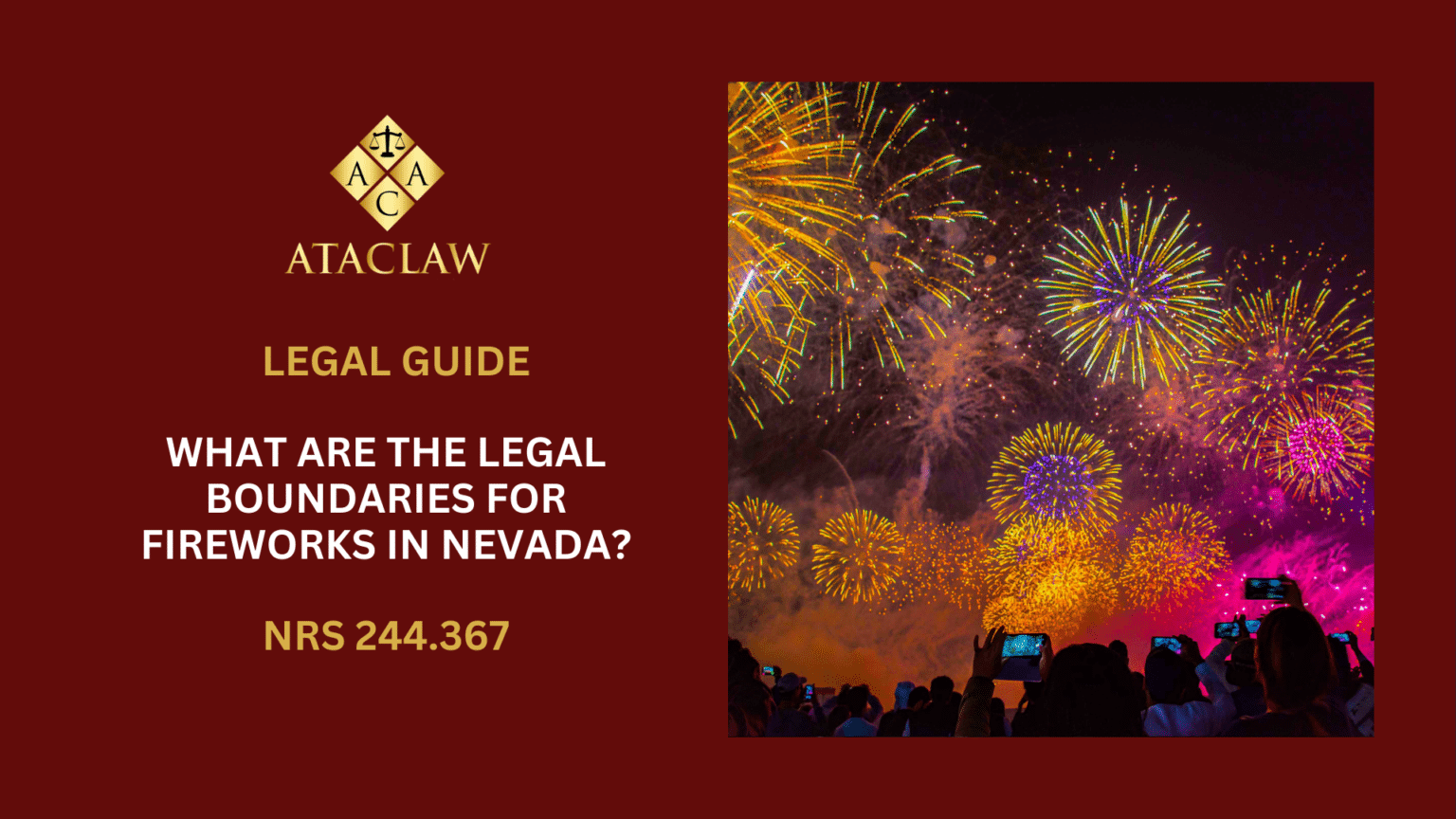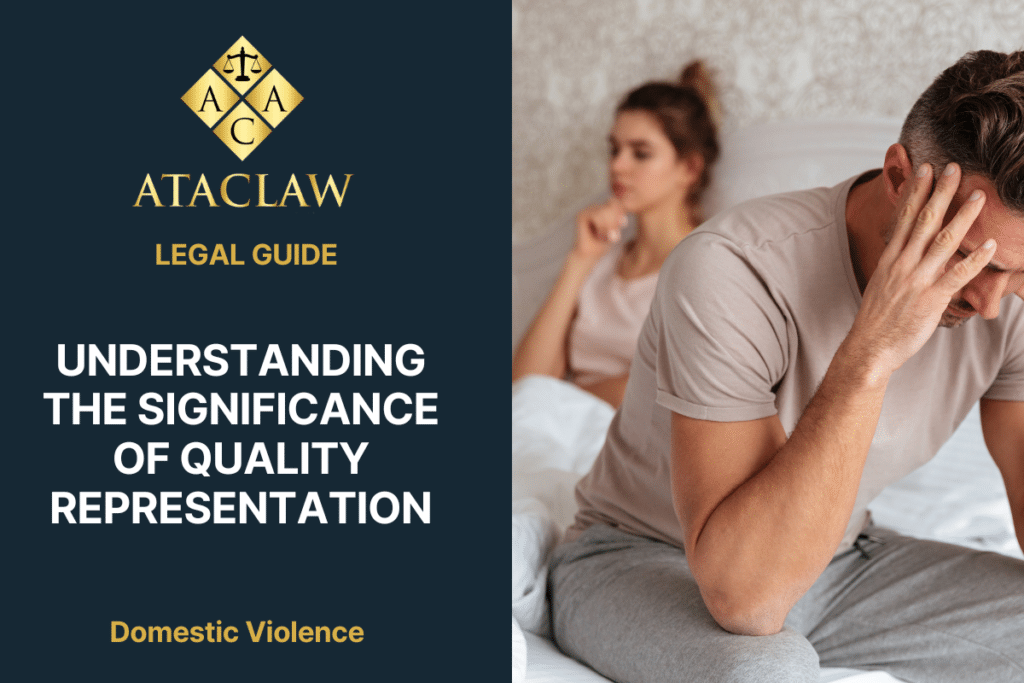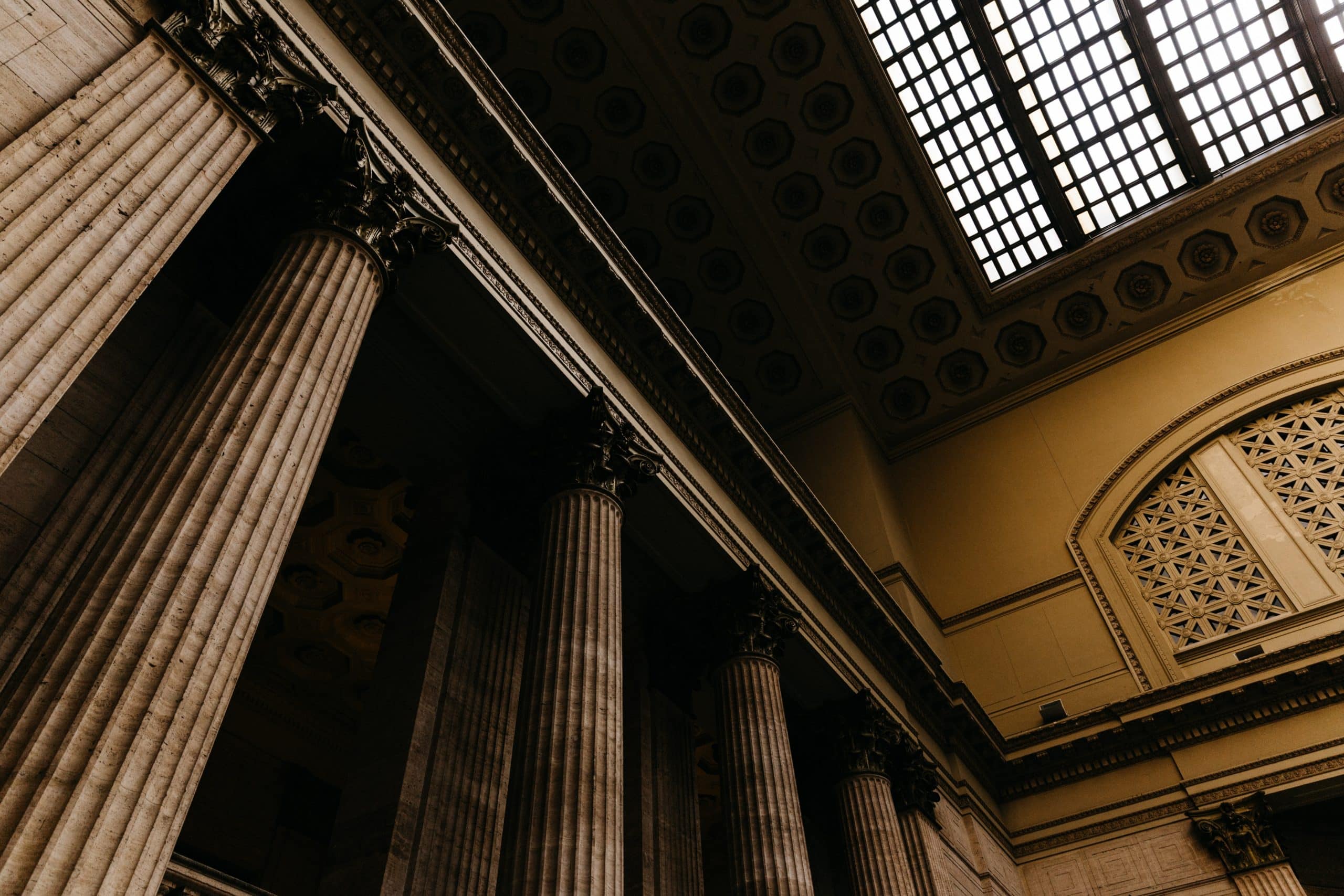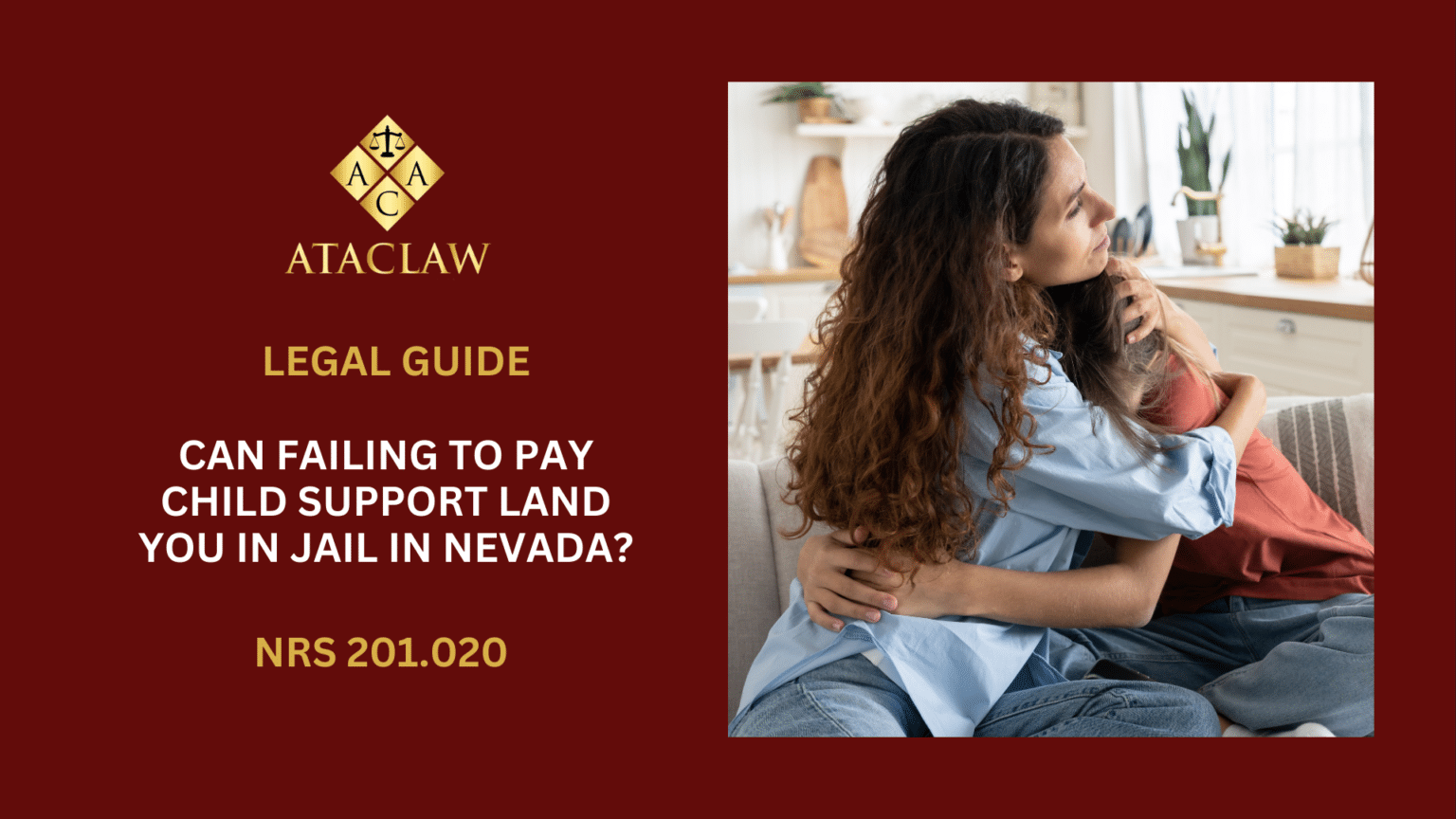As the Nevada vibrant lights of fireworks prepare to punctuate the sky this July Fourth, especially with the anticipation of a fervent 2024 election year, Nevada residents and visitors alike are ready to partake in the celebratory tradition. However, understanding the legal intricacies of fireworks usage is essential to ensure your festivities remain on the right side of the law. ATAC LAW has compiled a straightforward guide to navigating Nevada’s fireworks laws, ensuring your celebrations are both memorable and compliant.
In Nevada, the allure of fireworks is undeniable, but their use is regulated under specific conditions to ensure public safety. The state permits the usage of fireworks, albeit under three critical criteria:
- Selection: Only fireworks labeled as “Safe-N-Sane” are permitted.
- Purchase Location: These fireworks must be purchased from vendors operating out of booths approved by the fire department.
- Timing: The window for lawful fireworks usage extends from June 28th to July 4th.
Particularly in Las Vegas and throughout Clark County, Nevada, the law restricts fireworks to the “Safe-N-Sane” variety exclusively during the week leading up to Independence Day. This law aims to minimize accidents and ensure public safety during peak celebration times.
Can You Light Up the Nevada Sky?
Are you wondering where and when you can enjoy fireworks in the Silver State? As patriotic fervor and excitement for celebrations build, it’s crucial for Nevada inhabitants and tourists alike to be aware of the regional regulations governing fireworks. ATAC LAW provides a layman’s breakdown of the do’s and don’ts to ensure your festivities remain blissful and lawful.
Navigating the Firework Guidelines across Nevada Counties
Each county in Nevada sets its unique fireworks policies, but universally, specific locations are off-limits for fireworks use, including:
- Public roads and walkways;
- Educational properties overseen by school districts; and
- Any land under the administration of federal, state, or city authorities, which encompasses parks and recreational sites.
Due to these restrictions, notable Nevada sites such as Lake Mead, Red Rock Canyon, and Spring Mountain Ranch are no-go zones for any firework activities.
Las Vegas’s Specific Stance on Fireworks
Within the bustling hub of Clark County, which envelopes the renowned city of Las Vegas, only one type of firework crosses the legal threshold — Safe-N-Sane variants. The stipulated period for legal sale and use of these fireworks is confined to the week leading up to Independence Day. Safe-N-Sane fireworks are characterized by the absence of air travel or explosive features when ignited.
Over 400 licensed vendors, often associated with community organizations, are authorized to sell these fireworks from fire department-sanctioned kiosks. Nevertheless, even these safer fireworks transform into contraband outside the sanctioned week. For any leftovers post-July 4th, ATAC LAW advises reaching out to local fire authorities for proper disposal.
In Clark County, regardless of the time of year, firework types like bottle rockets, mortar shells, and oversized sparklers remain perennially banned.
What Should You Know About Transporting Fireworks into Clark County?
In the bustling heart of Nevada, even when the night sky calls for a light show, the laws surrounding the importation of fireworks are stringent. For residents and visitors of Clark County alike, it’s paramount to understand these regulations before revving up for a pyrotechnic display.
Clark County’s Firm Stance on Outside Fireworks
Bringing fireworks into Clark County from other jurisdictions—regardless of their legality elsewhere—is strictly forbidden. This blanket ban assures that the county’s safety guidelines and legal structure are uncompromised by external purchases.
- Flying with Fireworks: A Federal Offense
Traveling by air brings its own set of rules, especially where fireworks are concerned. Under the overarching umbrella of federal law, transporting fireworks aboard an aircraft represents a criminal act. This encompasses not only the act itself but any attempt to do so. - On Watch: Traffic Surveillance for Combating Illegal Fireworks
In a move reminiscent of sobriety checkpoints, law enforcement agencies like the Nevada Highway Patrol team up with the Las Vegas Metropolitan Police to operate routine traffic inspections. Their eyes are sharply trained for smuggled fireworks, especially during peak festive periods like the week leading up to the Fourth of July. A well-known area for such scrutiny is Blue Diamond Road, a conduit between Nye County—where the fireworks statutes are more lenient—and Clark County’s tighter reign.
Patrolling units set up these checkpoints with the intent to intercept illegal fireworks before they cross county lines, reinforcing the zero-tolerance policy against unauthorized pyrotechnics.
What Are the Legal Repercussions for Firework Violations in Clark County?
In Clark County, enjoying fireworks comes with a set of strict regulations to ensure public safety. It is crucial for both residents and visitors to understand the legal consequences associated with mishandling fireworks in this region, especially as festivities such as the Fourth of July approach.
Handling Illegal Fireworks: Citations and Arrests
Typically, law enforcement in Clark County handles minor firework violations by issuing misdemeanor citations, akin to receiving a traffic ticket. These citations include details like the court date and applicable fines, while confiscated fireworks are a standard procedure. However, more severe actions, such as arrests, are generally reserved for those caught with substantial quantities or using fireworks recklessly.
Understanding the Penalties for Firework Infractions
The base level of punishment for buying or possessing fireworks illegally in Clark County—barring the exceptions for Safe-and-Sane fireworks during certain times—is a misdemeanor. This can lead to material penalties but usually does not result in jail time. Specifically, the repercussions could include:
- A fine of a few hundred dollars for standard misdemeanor charges.
- A maximum of up to $1,000 in fines and/or up to six months in jail for more severe misdemeanors, though such maximum sentences are infrequent.
Additional civil penalties also apply based on the gross weight of the illegal fireworks involved:
- Less than 100 pounds: A $500 fine plus the costs of disposal for the first violation; $1,000 plus disposal costs for a second violation within three years.
- 100 to less than 5,000 pounds: A $5,000 fine plus disposal costs.
- 5,000 pounds or more: A staggering $10,000 fine plus disposal costs.
Special Considerations and Additional Liabilities
It is also crucial to avoid igniting fireworks within 300 feet of vulnerability points such as fireworks booths, gasoline stations, or other flammable material areas. Accidents in these prohibited zones, particularly those resulting in property damage in Las Vegas, could lead the court to mandate restitution payments, further enhancing the financial burden.
How Can You Defend Yourself Against Fireworks-Related Charges in Nevada?
For those facing charges related to fireworks in Nevada, understanding the potential defenses can be pivotal. The circumstances of each case will guide the creation of a robust defense strategy, but there are common defensive routes that may lead to favorable outcomes – such as proving:
- The fireworks in question were not your property,
- You had no authority or capacity to control the fireworks.
Individuals with no significant prior legal entanglements may find prosecutors willing to consider dismissal of the charges in return for a fine payment. A dismissal is highly advantageous as it averts a criminal conviction and preserves a clean record.
Despite the seemingly minor nature of illegal fireworks offenses, it is crucial to make every effort to have your case dismissed. This allows for immediate eligibility to petition for a record seal. If a conviction does occur, the resultant criminal record can only be sealed after a mandatory minimum of one year. Clearing one’s name from such convictions in Nevada can be an essential part of maintaining a clean public image and avoiding future legal discomfort.
Can You Legally Use Fireworks in Nye County, Nevada?
In Nye County, Nevada, including the town of Pahrump, you’ll find an interesting contradiction when it comes to fireworks. While you are allowed to buy fireworks that do not meet the “Safe-N-Sane” standards, the county enforces a strict rule against possessing or using any fireworks within its boundaries. This includes even those considered “Safe and Sane.”
To ensure compliance with these regulations, individuals purchasing fireworks in Nye County are required to sign a waiver. This agreement confirms the buyer’s commitment to transport the fireworks out of Nye County within a 24-hour timeframe.
This regulation might seem odd to those who purchase fireworks with the intention of celebrating within the county. The crucial aspect to remember is that despite the availability of fireworks for purchase in Nye County, they must not be used or even possessed within its limits. This law underscores the importance of planning your celebrations in locations where the use of fireworks is legal and safe.
Is It Legal to Use Non-“Safe-N-Sane” Fireworks at the Moapa Indian Reservation?
At the Moapa Indian Reservation, a unique set of rules regarding fireworks usage comes into play, due to the reservation’s sovereignty. Unlike the surrounding Nevada state or local jurisdictions, the Moapa Reservation doesn’t adhere to the same fireworks regulations. This autonomy allows vendors within the reservation to sell fireworks that fall outside the “Safe-N-Sane” category, which are typically restricted elsewhere in the state.
Upon purchasing these more potent fireworks, customers are often required to use them immediately. This is facilitated by the vendors providing flat, sand-covered areas, known as “launching pads,” located directly behind their stores. These designated areas ensure that the fireworks can be enjoyed safely and legally, without leaving the reservation.
This setup at the Moapa Indian Reservation provides a unique opportunity for fireworks enthusiasts to experience more exhilarating types of fireworks within a controlled and legal environment. It’s crucial for purchasers to adhere to the rules set by the vendors, including the immediate use of the fireworks on the designated launching pads, to ensure safety and compliance with reservation policies.
For those planning a visit to the Moapa Indian Reservation to enjoy fireworks that are not classified as “Safe-N-Sane,” it’s recommended to seek guidance or clarification on any legal considerations. Firms like ATAC LAW can offer valuable insights into the specific legal landscape of the reservation and help ensure that your celebrations are both memorable and within the bounds of the law.
For further legal assistance and to discuss your case with an expert, don’t hesitate to contact ATAC LAW.




